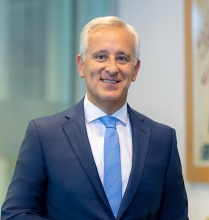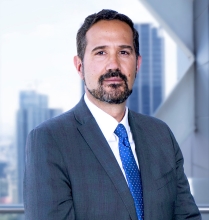Arbitration Regional Overview: Middle East and Africa
Arbitration Newsletter April 2018
The most relevant updates from Middle East and Africa from the global International Arbitration and ADR practice group at Garrigues.
DJIBOUTI
New LCIA claim after port seizure
United Arab Emirates port operator DP World has filed an LCIA claim against the east African state of Djibouti over the seizure of a container terminal. DP World is seeking a declaration that its contracts with the Djibouti government are valid and binding. It also seeks “urgent interim relief” to end the government’s “illegal seizure” of the Doraleh container terminal.
The dispute has its roots in a joint venture deal the parties signed back in 2006, with Djibouti handing DP World a concession to operate the Doraleh container terminal, five kilometres west of Djibouti City.
EGYPT
Egypt to pay for terminating gas supplies to Israel
A Cairo-seated tribunal has ordered two Egyptian state-owned entities to pay more than US$1 billion damages for repudiating a deal to supply gas to Israel following attacks on a pipeline, while an UNCITRAL tribunal has found Egypt in breach of a bilateral investment treaty in a parallel dispute.
The arbitrations centred on a gas sale and purchase agreement that had its roots in a 1979 peace treaty between Israel and Egypt. This provided for East Mediterranean Gas – an Egyptian company with an array of foreign shareholders – to supply gas to customers in Israel via an undersea pipeline it had built and operated.
JORDAN
Victory in pipeline claim
An UNCITRAL tribunal seated in Geneva has dismissed the bulk of a US$460 million claim brought by Disi Water Company (“Diwaco¨) against Jordan over the construction of a water conveyance system that has been described as the largest Turkish investment in the country.
The tribunal upheld the entirety of Jordan’s counterclaim, ordering the company to pay US$10 million in liquidated damages for project delays and US$12 million in legal fees and costs.
It ordered Jordan to pay US$2.5 million to Diwaco to compensate it for an increase in oil prices and US$112,000 for changing the route of the pipeline near the Al Karak bridge located south of Jordan’s capital, Amman.
LIBYA
Double win for National Oil Corporation
Two ICC arbitrations valued at over US$1.4 billion have ended in wins for Libya's National Oil Corporation, with tribunals dismissing claims brought by the Emirati owner, Libyan Emirati Refining Company (“Lerco”),- operators of the country's biggest refinery and – in the most recent case – allowing a US$116 million counterclaim.
Odebrecht loses ICC claim against Libya
The Libyan Audit Bureau has announced that an ICC tribunal in Paris has rejected a claim worth US$96 million filed by Odebrecht and the Libyan Brazilian Construction and Development Company, a joint venture between the Brazilian group and a Libyan state-owned entity. The dispute concerned a project to construct a third ring-road in the capital city of Tripoli that was interrupted by the country’s civil war.
Libya hit by civil war-related claim
Indian construction company Punj Lloyd has launched an ICC claim against Libya’s state oil company, National Oil Corporation (“NOC”), in a dispute over a pipe-laying project that was disrupted by the country’s civil war and then expanded in scope. The dispute concerns a 2006 contract Punj Lloyd entered with Sirte Oil, a subsidiary of NOC, to lay two pipelines in Libya and build three compressor stations.
MOROCCO
New BITs with Nigeria, Rwanda and Ethiopia
Three new Bilateral Investment Treaties (BIT) published on September 2017 have been announced by the Moroccan Government with Nigeria, Rwanda and Ethiopia.
The new BITs set out an innovative pre-arbitration procedure for preventing and resolving disputes. It is an example of the radical trend towards treaties that strike more of a balance between the interests of the contracting states and their investors in light of recent criticism of investment arbitration. Although investors are granted the possibility to commence arbitration, there are various steps to complete beforehand since the BIT with Nigeria for example first requires the exhaustion of local remedies.
SOUTH AFRICA
A new arbitration law has been published in South Africa
On 20 December 2017 the South African International Arbitration Act was published in the Government Gazette and entered into force on that date.
The Act is the first of a two-part overhaul of South Africa’s ADR landscape, along with the Protection of Investments Act, introduced in 2015, but still not in effect. As recommended by the South African Law Reform Commission, the Arbitration Act incorporates the UNCITRAL model law and provides for the enforcement of awards under the New York Convention.
U.A.E.
The U.A:E adopts a new arbitration law
On 27 February 2018 the Federal National Council – the equivalent of parliament – of the United Arab Emirates (UAE) approved a new arbitration law that will replace Articles 208 to 2018 of Chapter 3 of the UAE Civil Procedure Law, which has governed international arbitration in the UAE since 1992.
After the new arbitration law is presented to the Cabinet of Ministers for final review, it will enter into force after being signed by the UAE's Supreme Council and ruler Sheikh Khalifa Bin Zayed Al Nahyan, without any further detailed review of its contents. Whilst the final draft has yet to be made public, it is understood to include all the typical features of modern arbitration laws and to apply to all cases in the UAE bar those seated in the Dubai International Financial Centre or Abu Dhabi Global Market, freestanding financial free zones within the UAE that have their own common law frameworks and arbitration laws.
UGANDA
Claim over cancelled rail concession
An Egyptian-led consortium has launched an UNCITRAL claim estimated to be worth over US$100 million against Uganda following the cancellation of its concession to run the country’s rail network.
Rift Valley Railways (RVR), a Nairobi-based consortium majority-owned by Egyptian private equity firm Qalaa Holdings, filed the claim on 31 January 2018, requesting arbitration seated in Uganda.
On the same day, RVR applied to a Ugandan court for an injunction preventing the state-owned Uganda Railway Corporation from taking back control of the network while the arbitration is pending.
Contacts



-
+52 55 1102 3570
-
+52 81 8153 3900
-
+52 442 296 6400
-
+57 601 326 69 99


